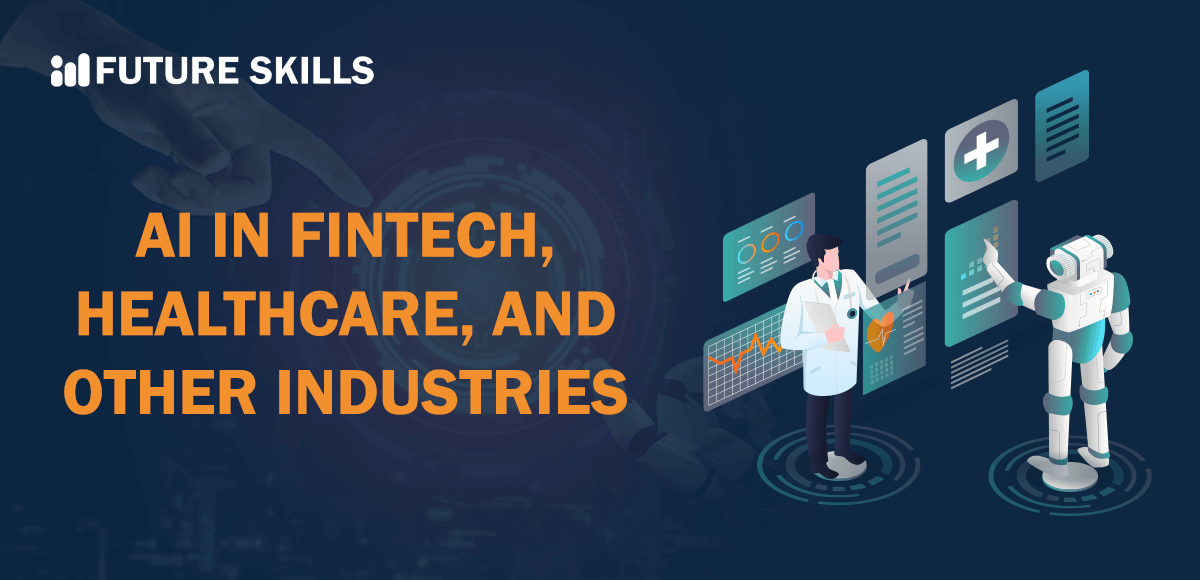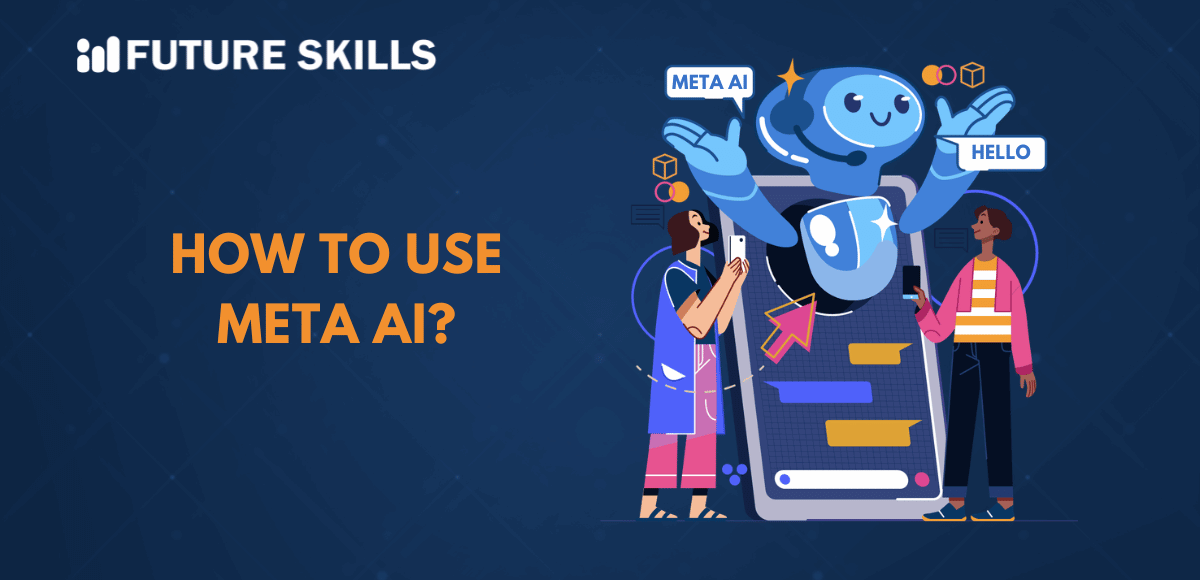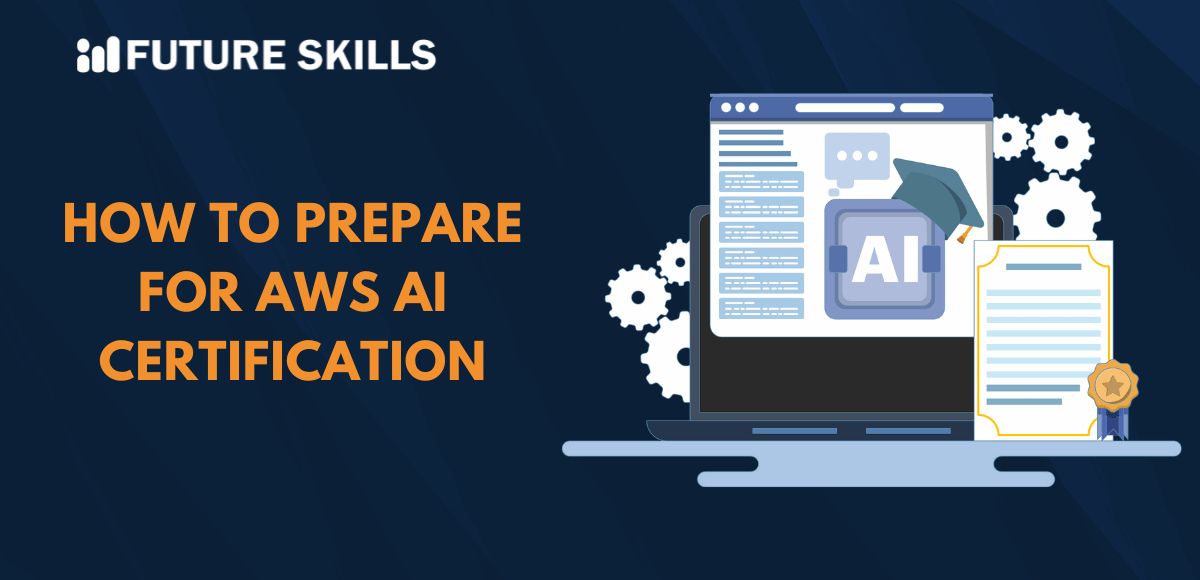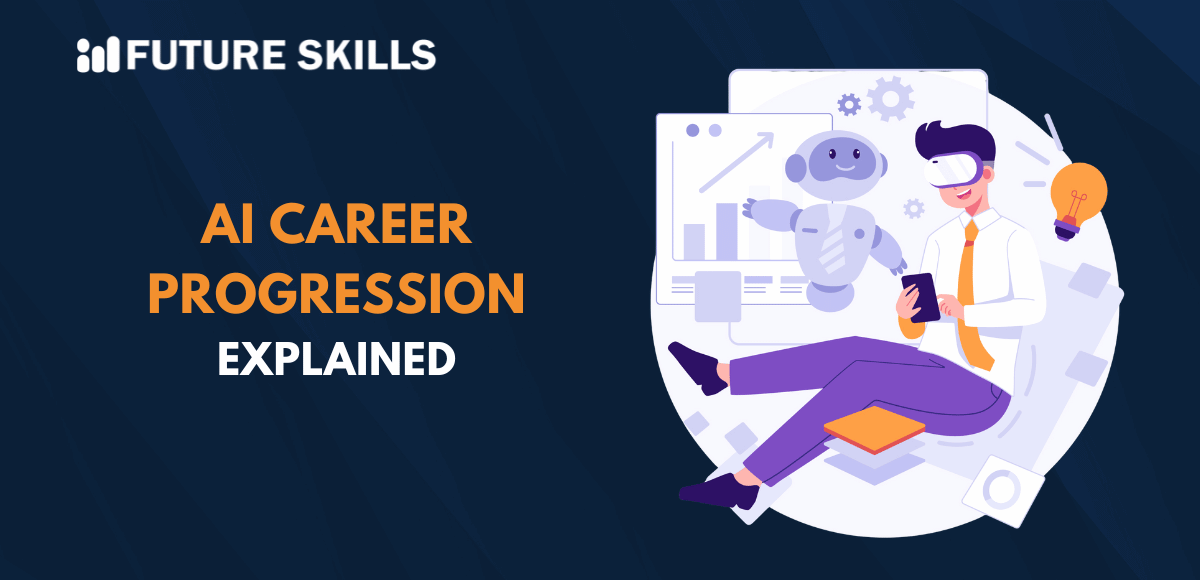Artificial intelligence has become the most popular buzzword in the world of technology. It has been one of the most elusive topics for tech experts. On top of it, popular culture has only made it difficult to consider AI a friendly companion. The implementation of AI in different industries has fuelled conversations about the impact of AI on jobs and workplaces.
How will artificial intelligence change or improve conventional practices for jobs and recruitment? Automation and artificial intelligence can introduce massive transformations in businesses. In addition, AI can also contribute to economic growth through additions in productivity. AI could also address challenges in healthcare and accessibility issues in fintech alongside serving valuable roles in addressing climate change.
It is also important to note that AI’s impact on jobs would introduce major changes in the workplace. AI would also have a significant impact on the nature of work. Therefore, employees in different sectors, such as healthcare and fintech, have to deal with major transitions and dislocation of the workforce.
The following post helps you explore the general impact of AI on society, businesses and the global economy. You can learn about the impact of AI on different jobs alongside a review of crucial workforce changes and challenges. The post also helps you identify the most important pointers for adapting to the dynamics of AI in labour markets worldwide.
Level up your AI skills and embark on a journey to build a successful career in AI with our Certified AI Professional (CAIP)™ program.
New Opportunities with AI
The foremost highlight associated with artificial intelligence is its capability to introduce new opportunities. Artificial intelligence is not a new concept, as people have been wondering about the approaches for introducing human-like thinking in machines for many years. Most of the discussions about artificial intelligence’s impact on business draw attention towards the boost offered by the latest technological advancements.
Research studies have indicated that society requires improvements by AI to ensure value-based advantages for businesses. In addition, AI can also provide substantial contributions to economic growth and resolve the most critical challenges in society. Here are some of the important factors underlying the possibilities for advancements in artificial intelligence.
-
Faster Technological Advancement
The foremost highlight among the implications of using AI to transform jobs in different industries is the pace of technological advancements. Most of the discussions about the implementation of artificial intelligence in fintech point to the new generation of powerful autonomous systems. You can find applications of more autonomous systems across different use cases, including automated check-outs at grocery stores.
In addition, autonomous driving in vehicles is also an example of AI advancements. It is important to note that such developments have been fuelled by improvements in the components and systems associated with AI. For example, the advancements in sensors, mechanics and software have helped to fuel massive improvements within the AI landscape.
Machine learning algorithms have been gradually becoming more sophisticated, ensuring massive computing power enhancements. On top of it, the exponential growth in the amount of data available for training AI algorithms has also boosted the adoption of AI.
Major improvements in artificial intelligence applications in healthcare have been making news as AI goes through some prominent breakthroughs. For example, modern AI systems include capabilities for natural language processing alongside computer vision, thereby ensuring better support for healthcare.
-
Potential for Business Transformation
The discussion about the impact of AI on jobs and global job markets also draws attention towards the capability for business transformation. You can evaluate the impact of AI on jobs in different industries by determining the disruptive impact of AI on the concerned industry. For example, artificial intelligence could remove many job roles in the healthcare sector which deal with data entry and manual processing tasks.
AI solutions have been successful in improving the value benefits of different products and services. Interestingly, companies in different sectors, such as fintech, have been exploring the possibilities of using AI to generate personalized product recommendations.
The applications of AI for business transformation also focus on activities such as identifying fraud transactions, anomalies in production and other use cases. One of the most prominent additions among the latest AI advancements points at techniques for addressing problems in classification, clustering and estimation.
Interestingly, a research report has pointed out that advanced deep learning techniques can generate around $3.5 trillion to $5.8 trillion in terms of annual value. The overview of artificial intelligence’s impact on business also points to the value advantages of improving the global economy and prosperity. Artificial intelligence could play a crucial role in improving labour productivity growth, which has been waning since the 2008 financial crisis.
Enroll now in the AI for Business Course to understand the role and benefits of AI in business and the integration of AI in business.
-
Societal Challenges
The effectiveness of AI in resolving the pressing concerns for businesses in almost every sector is visible in how they address societal challenges. It is reasonable to believe that the applications of artificial intelligence in healthcare would revolve around the advantages for society. However, AI could also serve promising use cases in the field of climate science.
Application of AI in healthcare, fintech or other sectors can help in resolving various societal challenges. For example, accessibility to financial services is still a myth for many people. On the contrary, applications of AI in fintech could help in automating and simplifying the approaches followed for using AI in healthcare.
The impressive use cases of AI in healthcare shed light on examples such as an AI algorithm which could reduce the diagnostic times by 96% for intracranial haemorrhaging. As a result, artificial intelligence could majorly impact addressing societal challenges.
Level up your ChatGPT skills and kickstart your journey towards superhuman capabilities with Free ChatGPT and AI Fundamental Course.
What are the Challenges for AI in the Existing Industries?
The applications of AI in different industries have been the primary topics of discussion for millions of professionals worldwide. Interestingly, the review of pointers regarding AI’s impact on jobs also draws attention towards challenges for AI. It is important to look at the limitations, which are technical, especially the need for massive repositories of training data.
The problems with applications of AI in major industries also point to the challenges with the size of training data and difficulties in the generalization of algorithms. Some of the other challenges with AI revolve around the utilization of AI techniques. For example, it is difficult to explain decisions made by AI algorithms.
On top of it, the implications of artificial intelligence’s impact on business also point to the limitations of organizations in adopting AI. The adoption of AI technologies demands process readiness, data availability, the right people and technology resources. Therefore, you are more likely to find an uneven pattern of adoption across different industries.
As of now, the applications of artificial intelligence in fintech, telecommunications and automotive industries have registered the highest adoption rates. In addition, countries such as the USA and nations in Asia are investing in AI projects, which suggests its massive impact.
Impact of Artificial Intelligence on the Fintech Industry
Before you try to find out the impact of AI on jobs, you should know how artificial intelligence would influence fintech. The impact of technology on the industry provides valuable insights for understanding the newly induced reforms.
The review of important highlights in the impact of AI on jobs would draw attention towards the ways in which AI improves the traditional approaches. Artificial intelligence could help in supporting the transformation of different tasks in the financial technology landscape. Here is an outline of the fintech operations which you can improve with artificial intelligence.
- Risk assessment
- Financial management and advisory
- Personalized services
- Trading assistance
- Immersive dialogues with chatbots
- Security mechanisms
- Automated lending process
On the other hand, the implementation of artificial intelligence in fintech also draws attention towards the limitations of AI in fintech. Some of the notable challenges to the adoption of AI in fintech include lack of technical expertise, the ability to establish trust and ensuring data security. At the same time, applications of AI in fintech would also deal with limitations in regulatory compliance.
Familiarize yourself with the best practices for implementing AI and fintech solutions With AI and Fintech Course.
Applications of Artificial Intelligence for Healthcare
The implementation of artificial intelligence in the field of healthcare also presents multiple opportunities for improvement. You can find different types of AI technologies for healthcare, such as machine learning, natural language processing, rule-based expert system and robotic process automation.
The explanation for applications of artificial intelligence in healthcare would also refer to the ways in which AI transforms healthcare services with digital transformation advantages. Here are some of the notable applications of AI in the domain of healthcare.
- Robot-assisted surgery
- Fraud detection
- Supporting validations for clinical conditions
- Assistance for repetitive tasks
- Improving the outcomes of precision medicine
- Introducing personalized user experiences in online and in-person consultations
- Medication management
- Automation of image diagnosis
- Drug development
As you can notice, the impact of artificial intelligence on different industries such as fintech, healthcare and others industries can transform user experiences. Therefore, businesses in these industries will likely seek professional talent to transform how they understand and use AI.
Become a certified ChatGPT expert and learn how to utilize the potential of ChatGPT that will open new career paths for you. Enroll in Certified ChatGPT Professional (CCGP)™ Certification.
Effect of Artificial Intelligence on the Job Market
Robots and artificial intelligence might appear as entities from a science fiction novel or movie. Will Arnold Schwarzenegger have to dress up as the Terminator to save us from an omniscient AI in the future? The answer to such questions can be found only by waiting for future events. As of now, discussions about AI’s impact on jobs across different industries have been gaining momentum. You can find an answer to your questions by taking a look at the following ways in which AI could transform jobs.
-
Robotic Domination
You can also think of such terms as ‘robotic revolution’ as the World Economic Forum suggests a radical change in the labour markets. Within two years, humans and machines would share the workload in equal proportions.
The shift in the distribution of workload between humans and machines would influence different industries such as healthcare, accounting, transportation and agriculture. You must have noticed the robotic influence of artificial intelligence applications in fintech with the introduction of AI-based chatbots. Fintech companies have been utilizing chatbots to improve customer service, thereby implying the possibility of changes in customer service job roles.
-
Miracles in Healthcare
The healthcare domain is quite complicated and relies on doctors’ precision for resolving health concerns. You are less likely to find miracles in healthcare with complicated workflows and outdated data reporting mechanisms.
Implementing artificial intelligence in healthcare would help introduce advanced technologies for outperforming doctors. For example, robot-assisted surgery is one of the major applications of AI in healthcare, which could create wonders in medical science.
On the other hand, AI has a higher success rate in the diagnosis of diseases and the recommendation of ideal treatment plans. Therefore, AI could emerge as a prominent player in the field of healthcare, especially for addressing repetitive tasks like data entry. On top of it, AI could also help in the personalization of user experiences for patient consultations. Will AI take away the jobs of doctors? No. On the contrary, artificial intelligence could serve a crucial role in supporting the work of healthcare professionals.
Excited to understand the crucial requirements for developing responsible AI and the implications of privacy and security in AI, Enroll now in the Ethics of Artificial Intelligence (AI) Course
Challenges for Workers
The final aspect in a review of the impact of AI on jobs focuses on challenges for workers. It is important to believe that workers would need a different set of skills to adapt to future workplaces. The effect of AI on the modern labour markets would also lead to trends such as changes in occupations by workers. At the same time, you must also look out for negative implications, such as the impact of automation on average salaries in advanced economies.
Bottom Line
The different aspects in the review of the impact of AI on jobs focus on the changes introduced by AI. Artificial intelligence plays a crucial role in transforming healthcare, fintech and many other industries with automation. On top of it, you should also notice how artificial intelligence could transform conventional business operations and workflows.
At the same time, it is also important to understand the transitions and changes in the labour markets with AI. You must familiarize yourself with the fundamental concepts of artificial intelligence and how it works in different industries. It can help you identify how AI would have a transformative impact on jobs in different industries.





